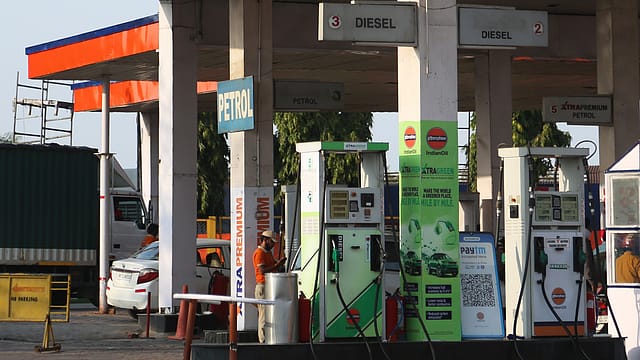Govt slashes windfall tax on domestic crude oil, exports of diesel; here’s how oil stocks reacted
ADVERTISEMENT

Shares of the oil and gas retailers were trading mixed on Friday after the central government slashed the windfall tax on domestically produced crude oil to ₹1,700 per tonne with effect from December 16. The government also reduced the windfall tax on the export of diesel to ₹5 per litre, and the windfall tax on aviation turbine fuel has been reduced to ₹1.5 per litre.
According to a government notification, in a fortnightly review, the windfall tax on domestically produced crude oil has been halved to ₹1,700 per tonne from ₹4,900 per tonne, the tax of export of diesel has been slashed to ₹5 per litre from ₹8 per litre, as well as the tax on the aviation turbine fuel has been reduced to ₹1.5 per litre from ₹5 per litre.
Following this development, shares of Oil & Natural Gas Limited (ONGC), the country’s largest oil and gas producer, surged 1.02% at ₹148, while Bharat Petroleum Corporation Ltd (BPCL) stock declined 0.57% at ₹346. The share price of Indian Oil Corporation Ltd was trading marginally higher by 0.19% at ₹78.20. Shares of Hindustan Petroleum Corporation Ltd (HPCL) witnessed a decline by 1.18 % to ₹243.70, and the share price of Reliance Industries advanced 0.75% to ₹2,598. The NSE Nifty energy index declined 0.29% to 26,411.
On Thursday, the government said that the prices of petrol and diesel have not been increased by public sector oil marketing companies (OMCs) since April 6, 2022, despite record high international prices, owing to which the the three state-run fuel retailers — Indian Oil Corporation, BPCL and HPCL — have booked a combined loss of ₹27,276 crore in the first six months of the ongoing financial year, as against the combined profit before tax of ₹28,360 crore in the first half of financial year 2021-22.
While the average price of Indian basket of crude oil increased by 102% (from $43.34 to $87.55) between November 2020 and November 2022, the retail prices of petrol and diesel have increased in India by only 18.95% and 26.5% during this period, according to the government.
On Friday, the S&P BSE Sensex opened lower at 61,534 from the closing price of the previous session at 61,799. At the time of reporting, Sensex declined 235 points or 0.38% at 61,563, whereas the Nifty 50 index plunged 77.55 points or 0.42% at 18,337. The oil prices edged lower on Friday days after major central banks hiked the interest rate globally. The Brent crude oil benchmark declined 24 cents or 0.3% at $80.97 per barrel, whereas the US West Texas Intermediate (WTI) crude futures slipped 29 cents or 0.4% to $75.82 per barrel.
On July 1 this year, the Indian government joined a group of nations that imposed a windfall tax on crude oil owing to soaring energy prices. The government imposed a cess of ₹23,250 per tonne on domestic crude oil and slapped a ₹6 per litre tax and ₹13 per litre tax on the export of petrol and diesel respectively. However, after the initial cut, the windfall tax on petrol has been scrapped over subsequent fortnightly reviews.
Notably, the Centre first introduced a cess of ₹23,250 per tonne through special additional excise duty (SAED) on domestically produced crude oil on July 1, 2022. Import of crude oil was not subject to this cess. However, to tap into the huge profits of oil refiners and retailers, the government decided to impose a windfall tax on oil export. The measures were supposed to compensate for the excise duty cut on fuel, which was announced in May 2022.